Geopolitics is the study of how geography influences political power and international relations.
Energy plays a central role in these dynamics.
Four key factors drive energy geopolitics:
- Countries need energy to power their economies and infrastructure
- Not all countries have sufficient energy resources, creating dependencies on others.
- These dependencies create power dynamics, where energy-rich nations gain leverage over energy-poor ones.
- This leverage can be used to achieve broader political goals.
Given the complexity of energy-related geopolitical interactions, it’s impractical to cover everything interesting.
Instead, we’ll explore a few instructive examples that give us an intuition for how energy shapes global power and international relations.
Resources
At the core of energy geopolitics is the uneven distribution of natural resources.
The materials that power economies - whether directly, like oil and gas, or indirectly, like lithium and cobalt - are not spread evenly across the globe.
This imbalance gives certain countries disproportionate control over critical supplies, and with it, geopolitical leverage.
Energy resources alone can define political regimes, shape economies, and often drive conflict.
Oil Reserves in Saudia Arabia & Venezuela
Few resources illustrate the power of energy geopolitics like oil.
The concentration of oil reserves in countries like Saudi Arabia and Venezuela has shaped the structure of their political regimes.
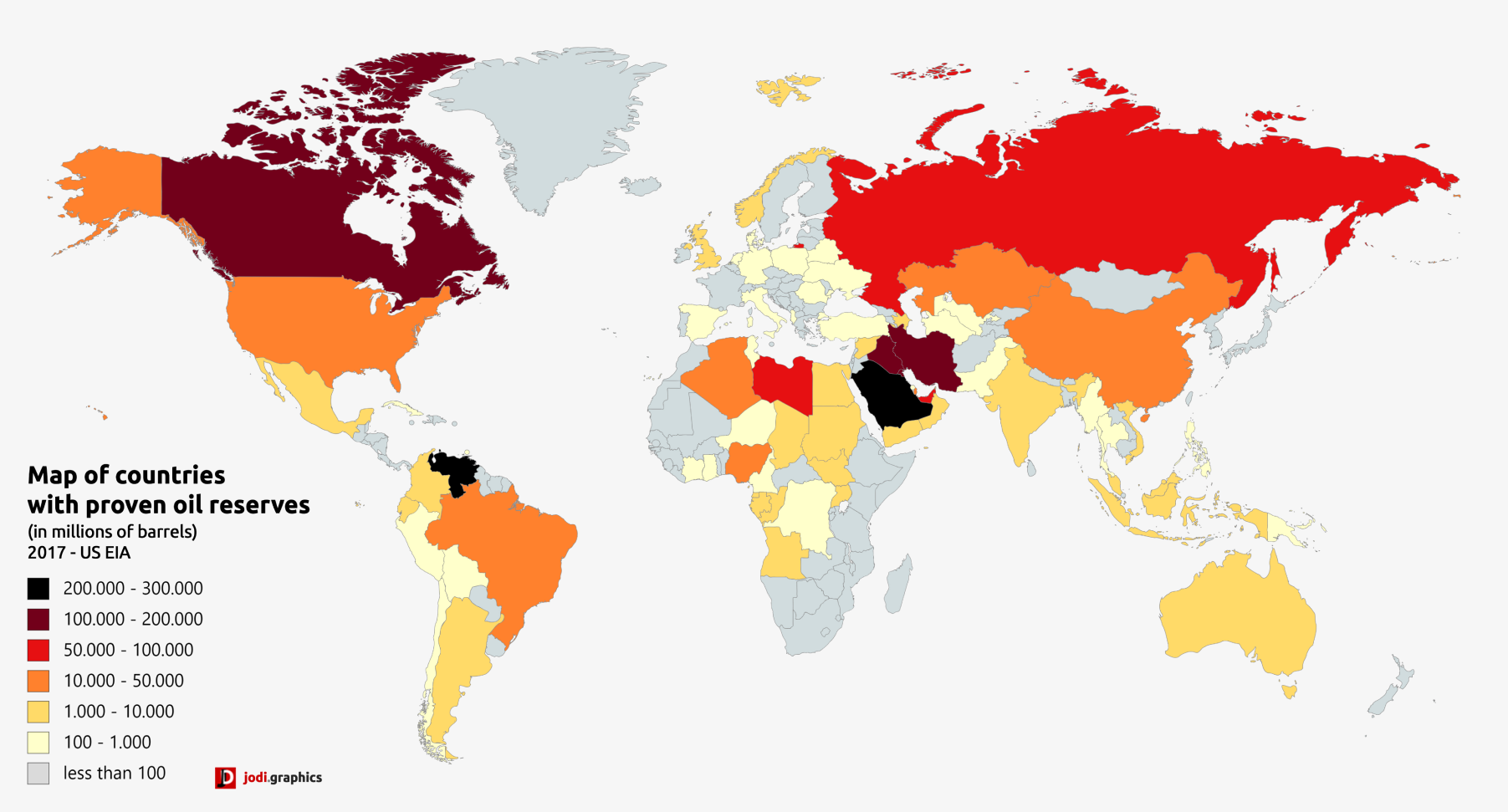
global oil reserves are concentrated in Saudi Arabia and Venezuela[1]
Saudi Arabia's oil wealth has enabled the rise of the House of Saud, allowing the monarchy to consolidate power and project influence globally.
In contrast, Venezuela, despite having one of the largest oil reserves, fell victim to the "resource curse."
Oil wealth enabled the rise of authoritarian regimes under Hugo Chavéz and Nicolás Maduro, but mismanagement of oil revenues led to economic collapse when global prices fell.
This collapse pushed Venezuela into the poverty and instability that it still exists in today.
This example highlights how control of energy resources can lead to significant consolidation of power, or collapse under mismanagement.
Russian Natural Gas
Russia's control of vast natural gas reserves in its western territories have made it a central player in European energy politics.
Through an extensive network of pipelines, Russia has become Europe's primary supplier of natural gas, creating a dependency that has given Moscow significant leverage over the EU.
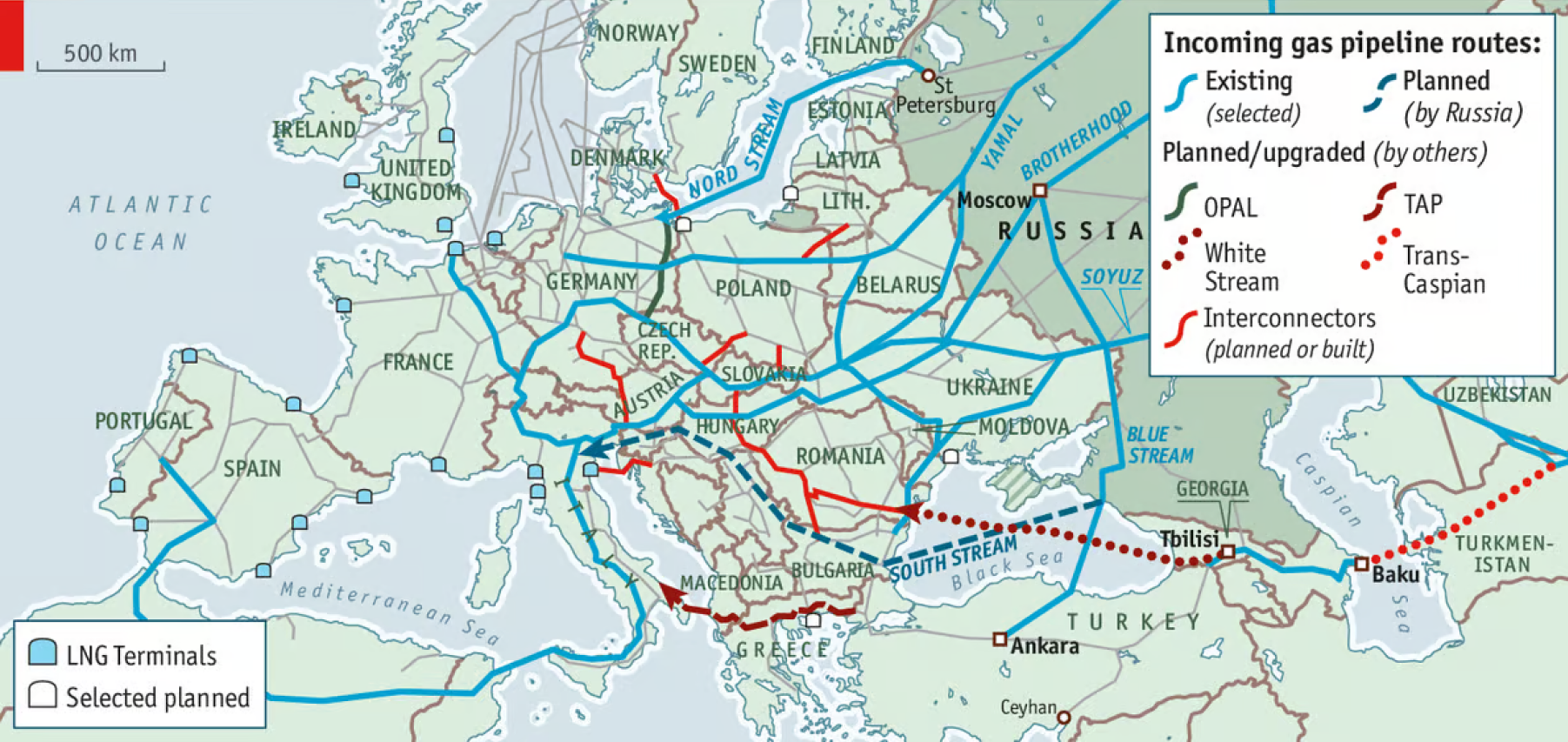
european natural gas pipelines pull from russia[2]
The Nord Stream piplines highlight this dependence.
To bypass transit through Ukraine, Russia constructed two major pipelines to deliver gas directly to Europe: Nord Stream 1 and Nord Stream 2.
In 2022, the sabotage of Nord Stream 2 using underwater explosives caused significant leaks, leaving Europe scrambling to find alternative energy sources.
This example highlights the strategic importance of energy infrastructure - and how energy dependence can turn into geopolitical vulnerability.
China's Lithium Reserves
As the world transitions to renewable energy, control over materials critical to battery production may become as important as oil and gas.
China's dominance in global lithium reserves positions it well for the future of energy storage.
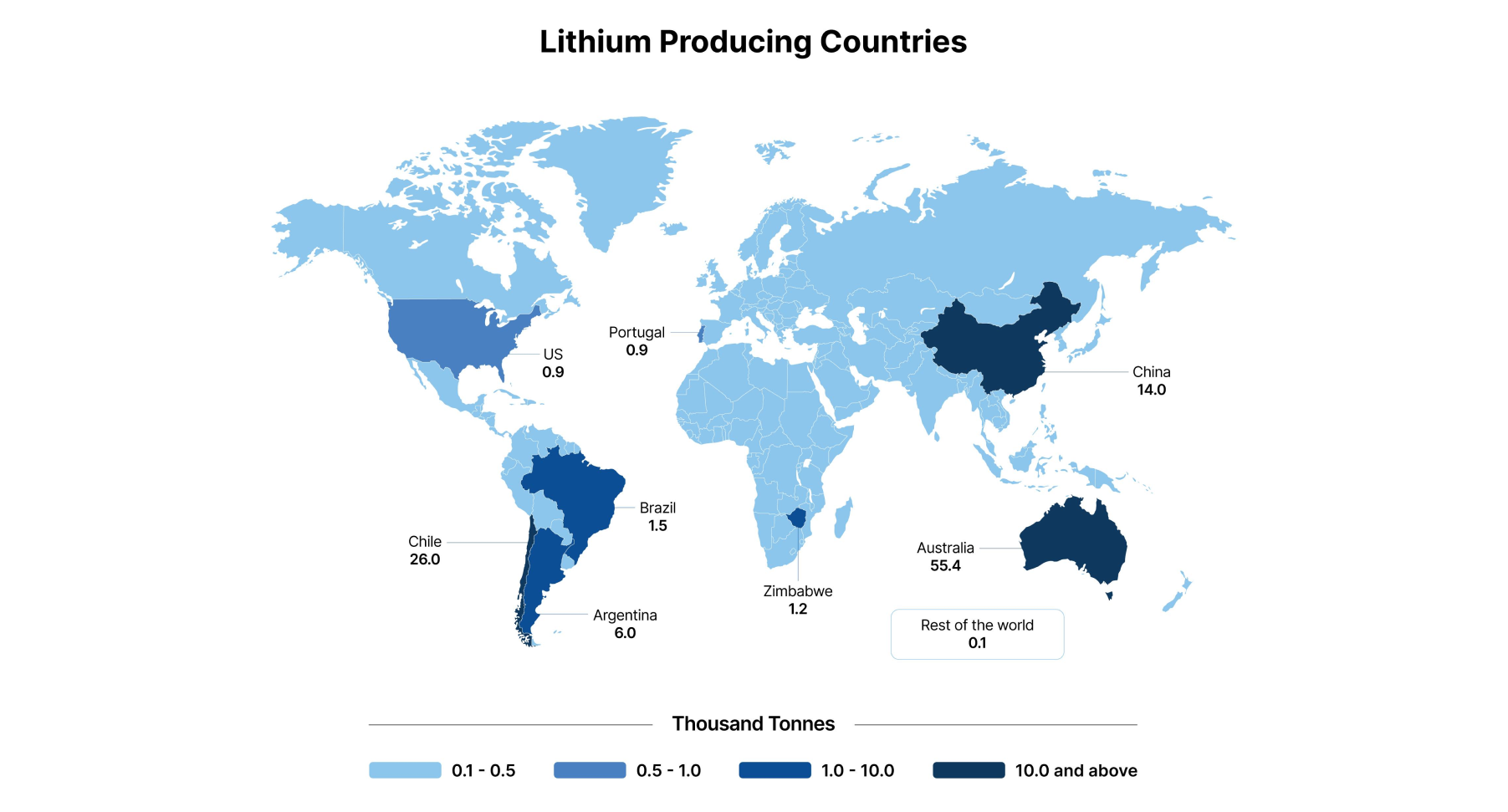
global lithium reserves are also concentrtated in China[3]
As demand for lithium-ion batteries grows with increasing electrical vehicle and grid storage adoption, China's control of lithium could become a powerful geopolitical lever.
The Congo's Cobalt ReservesChina's strategic dominance over lithium reserves highlights how energy transitions reshape global power structures.
An extreme example of resource dependency can be seen in the Democratic Republic of the Congo (DRC), which controls the majority of the world's cobalt reserves.
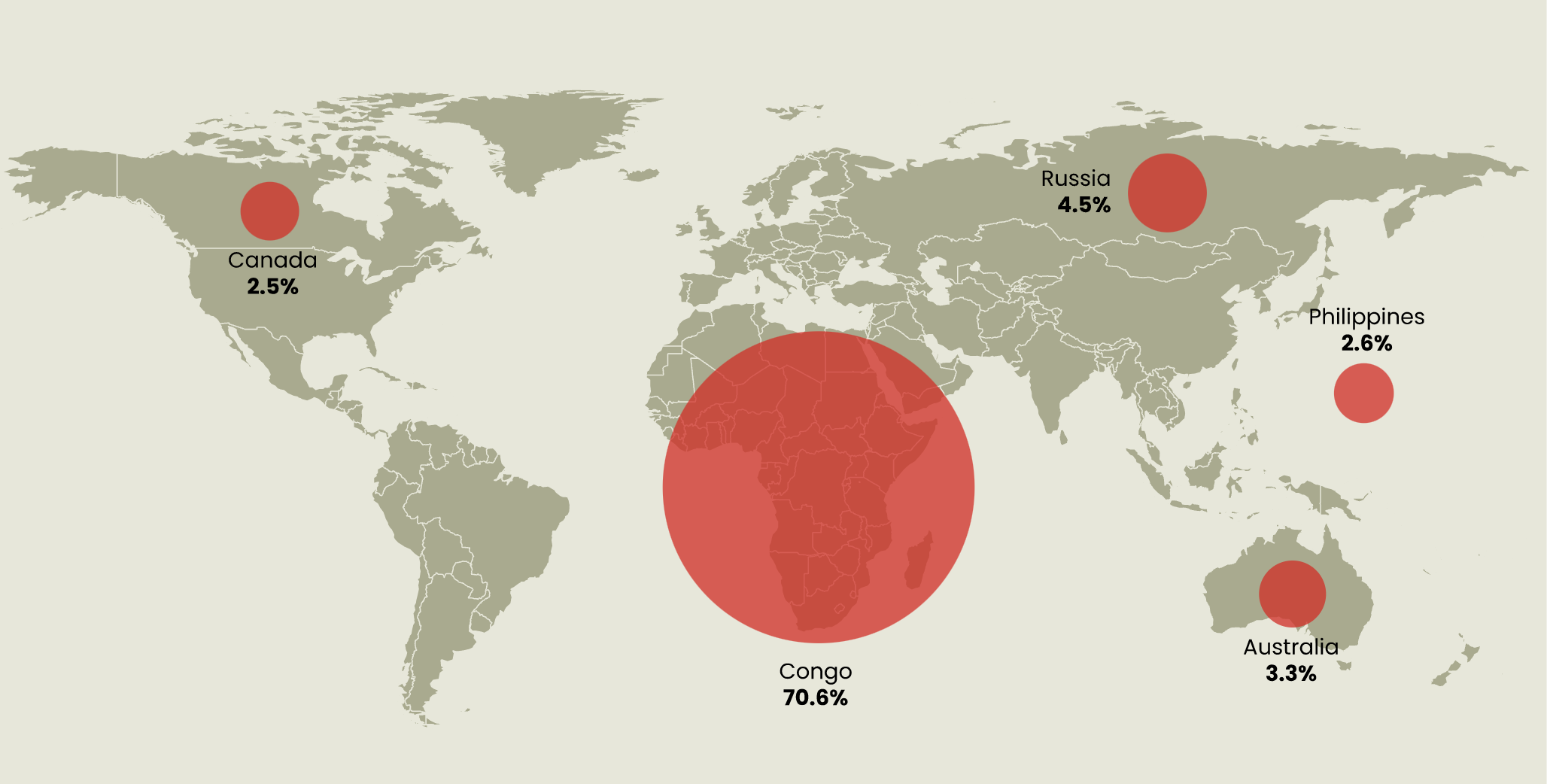
global cobalt reserve are concentrated in the Congo[4]
As we saw in Part V, cobalt is essential to many battery chemistries, including the lithium-cobalt oxide (LCO) batteries used in early EV models.
However, parts of the DRC’s cobalt industry are associated with child and slave labor, raising ethical concerns within the global supply chain.
Companies that depend on cobalt are faced with the ethical challenge of supporting an economy tied to human rights abuses.
Geography
Energy geopolitics is also shaped by geographic chokepoints in global supply chains.
A key example is the Strait of Hormuz, where ~25% of the world's oil supply passes through a narrow body of water that's vulnerable to disruption.
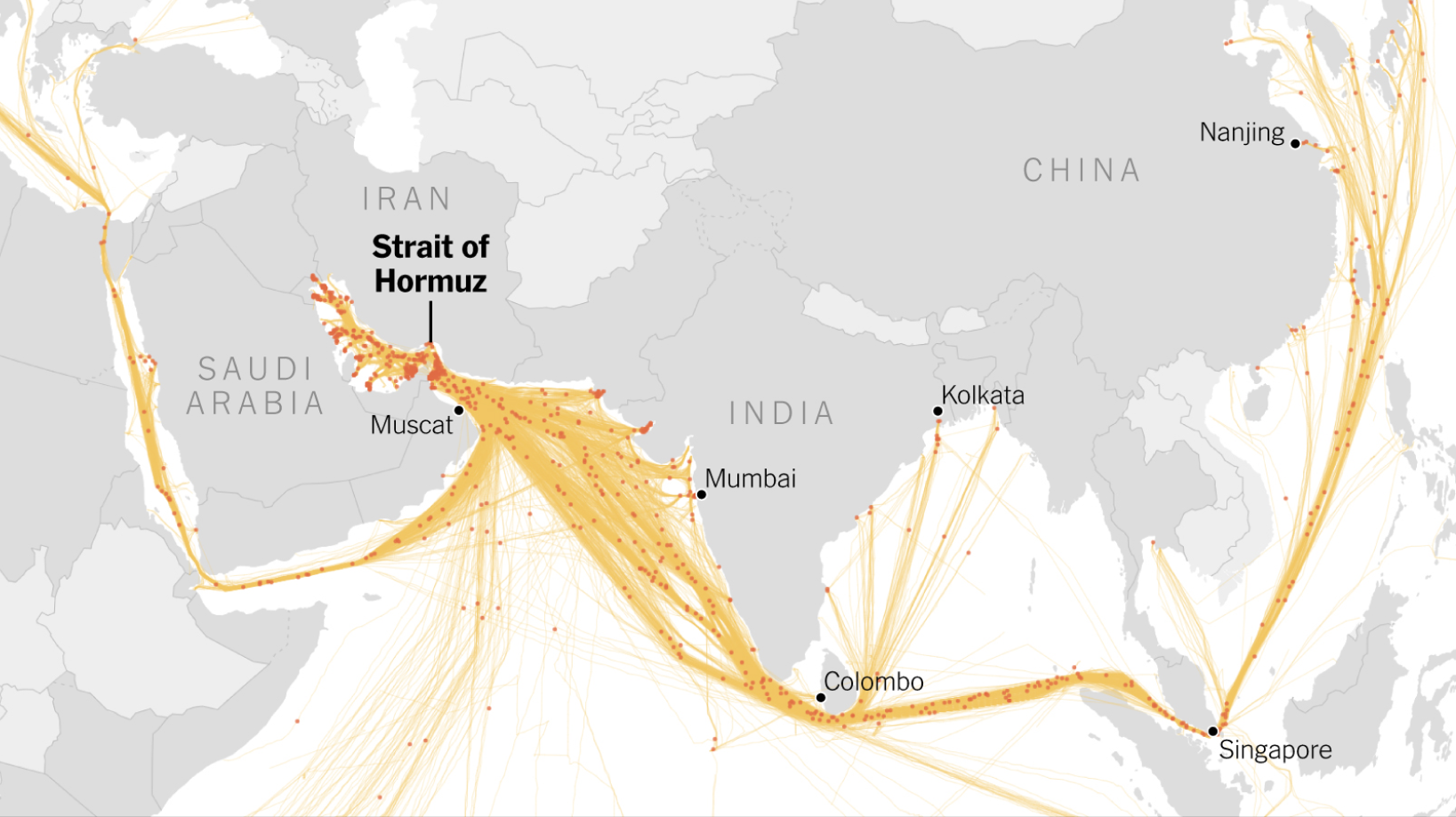
oil routes going through the strait of hormuz[5]
Control over this chokepoint is vital to global energy stability. Any disruption here can affect oil supplies worldwide, as seen in past geopolitical crises like the tanker attacks in 2019, which raised fears about global oil shortages.
Independence
Energy dependence on other countries creates vulnerabilities.
Achieving energy independence reduces this risk and provides strategic freedom.
For the world’s major powers, reducing dependence on foreign energy is a major geopolitical objective.
Let's look at the relative energy independence of the largest global powers.
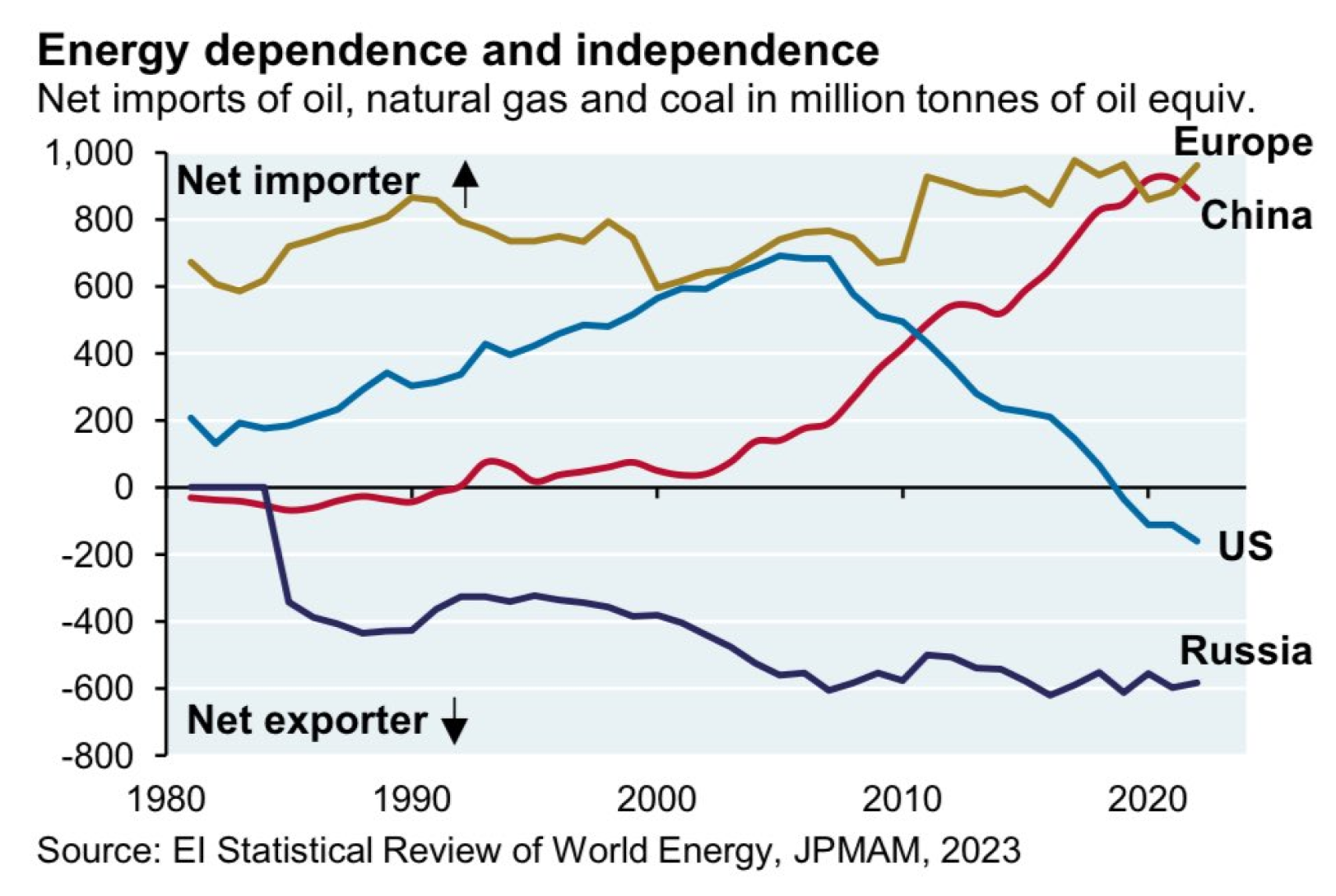
the US has become a net energy exporter[6]
We can see that the US has shifted from energy dependence to becoming a net energy exporter after 2005, largely due to the expansion of fracking and shale oil production.
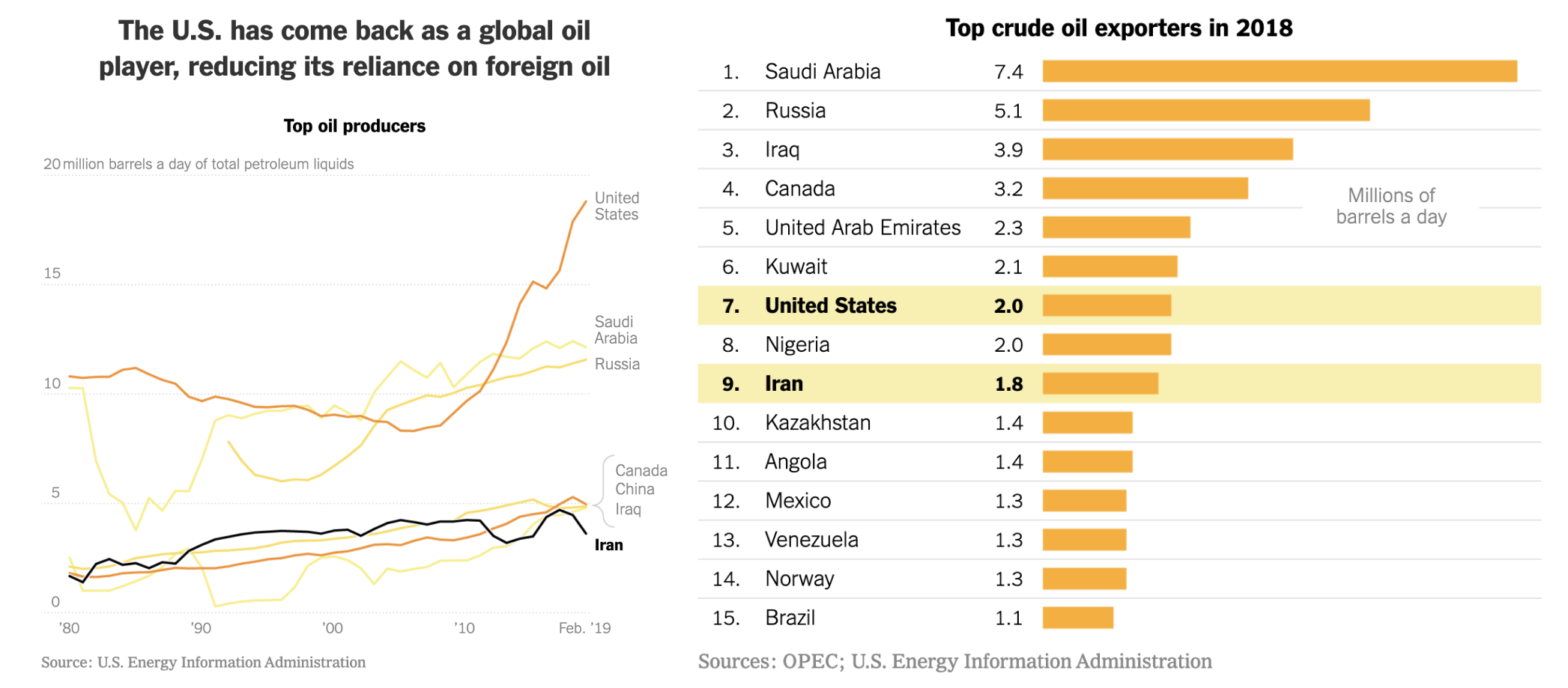
US oil exports have increased
While the US still engages heavily in global energy trade, this shift has reduced its reliance on external sources.
However, this move toward energy independence has come with ecological trade-offs — fracking, though politically and economically beneficial, is criticized by environmental advocates as damaging to the environment.
In contrast, the EU remains heavily reliant on external energy sources, especially from Russia.
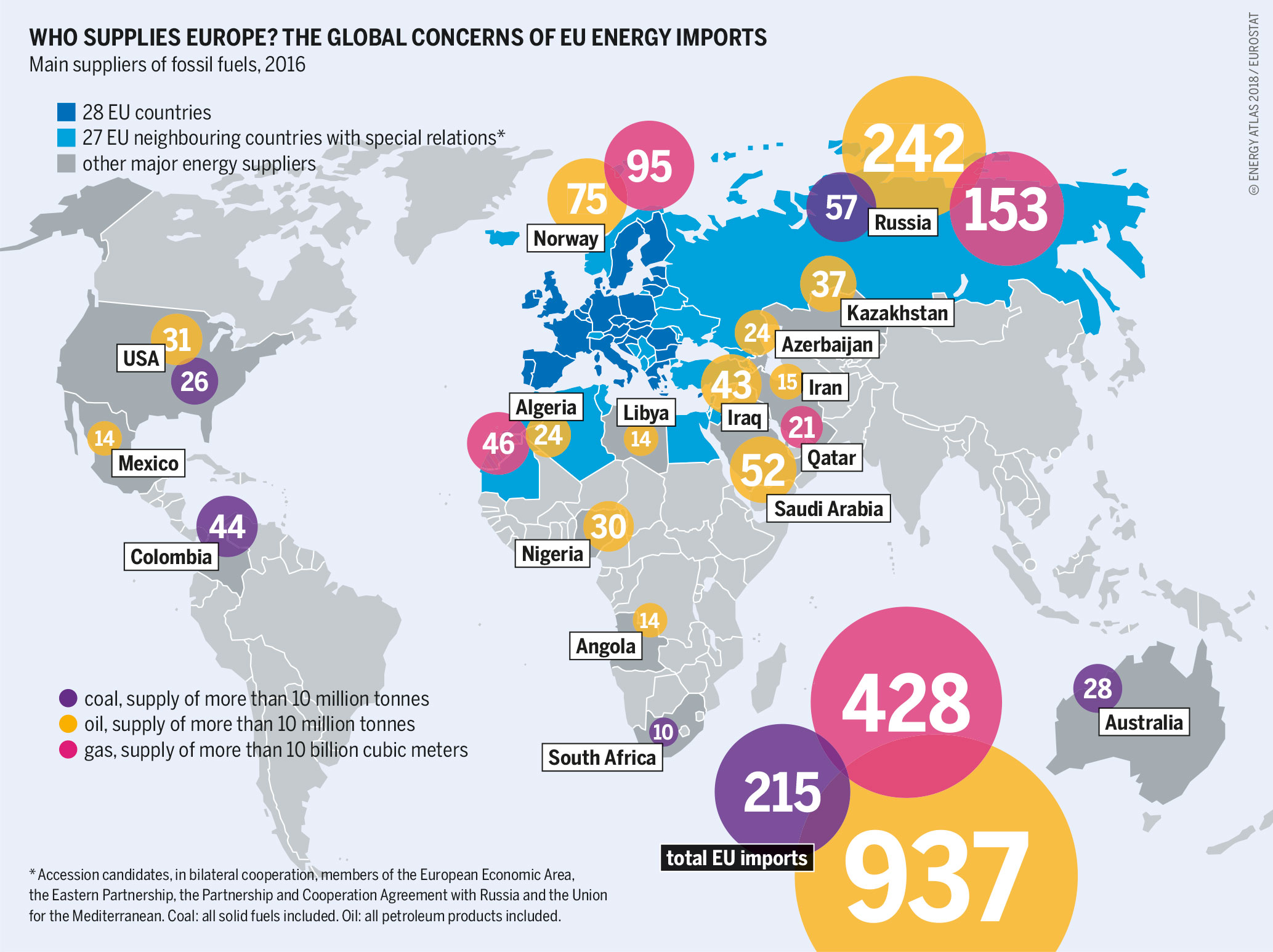
the EU heavily depends on external energy sources[7]
Energy independence remains a critical geopolitical goal, guiding energy policy decisions around the world.
Transitions
Energy transitions reshape global power structures.
We saw that the 20th-century shift to oil led to the rise of Saudi Arabia and Venezuela.
Today, the renewable energy transition is creating new geopolitical dynamics.
China is at the forefront of this shift, controlling >65% of global EV battery production and leading the world in solar photovoltaics and wind turbine manufacturing.
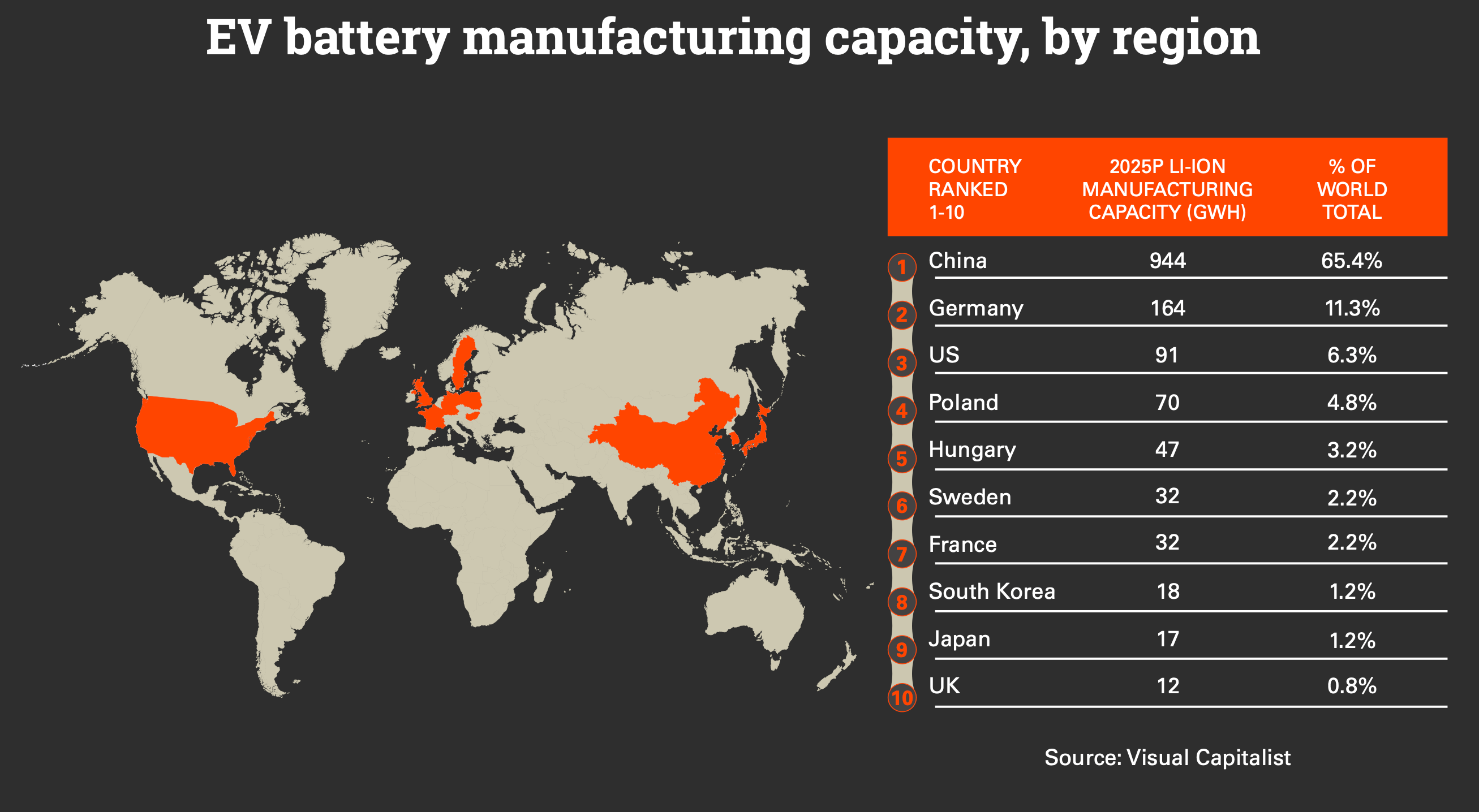
China controls 2/3 of EV battery manufacturing[8]
In addition to its manufacturing strength, China has proven its ability to innovate in energy technology, improving the efficiencies of battery storage, solar, wind, and small modular reactors.
These factors may position China as a dominant power in the global energy transition.
Finally, countries that fail to adapt during energy transitions risk falling behind.
We can see the effect of this in the following map of global electrification, where we see that large parts of Africa and some parts of Asia still lack access to electricity.
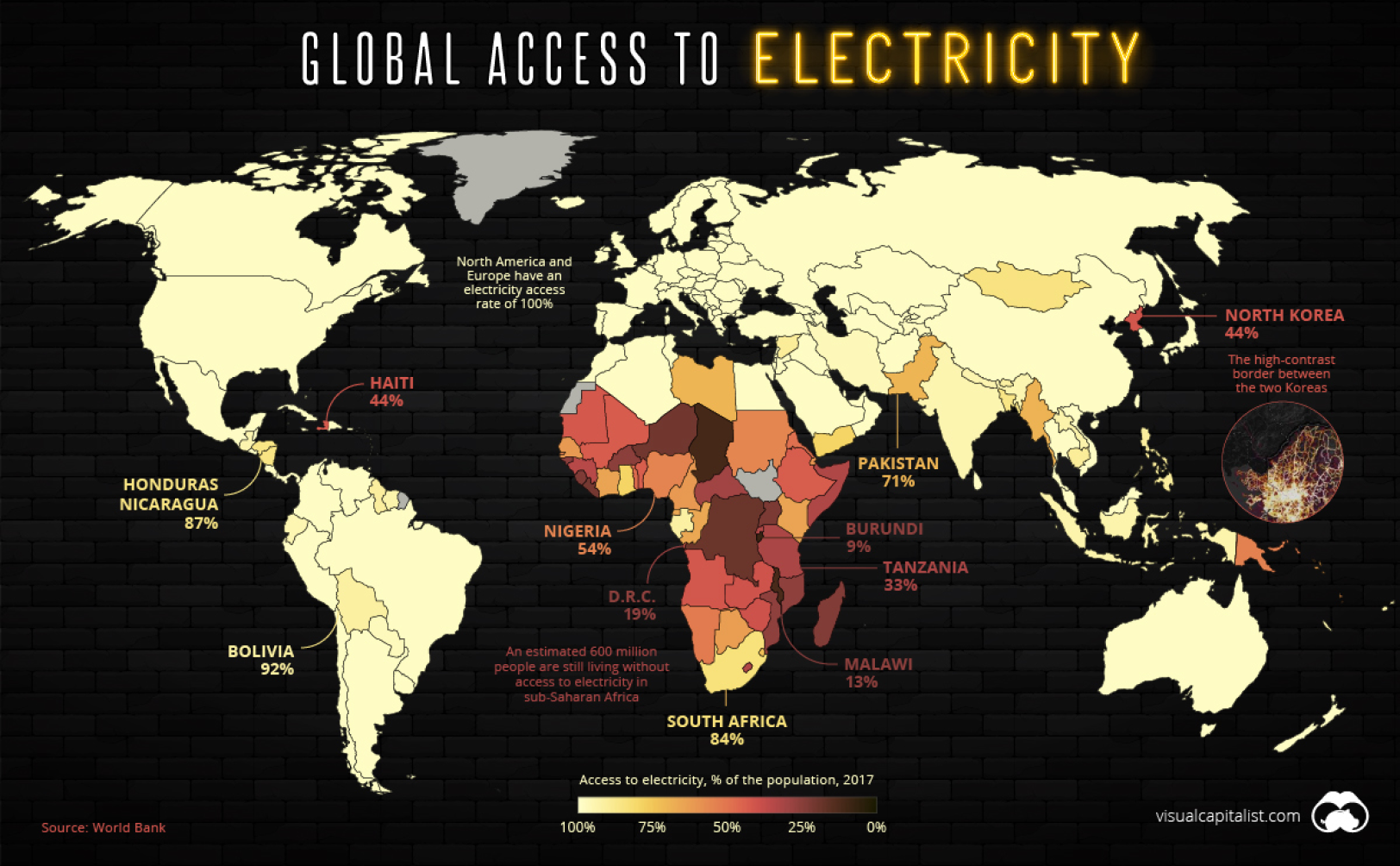
many countries still lack full access to electricity[9]
Countries whose economies rely heavily on fossil fuel exports face the greatest risk from the shift to renewables and are already strategizing on how to adapt.
For example, Saudi Arabia plans to spend $1 trillion by 2030 to invest in new energy technologies to facilitate this transition.
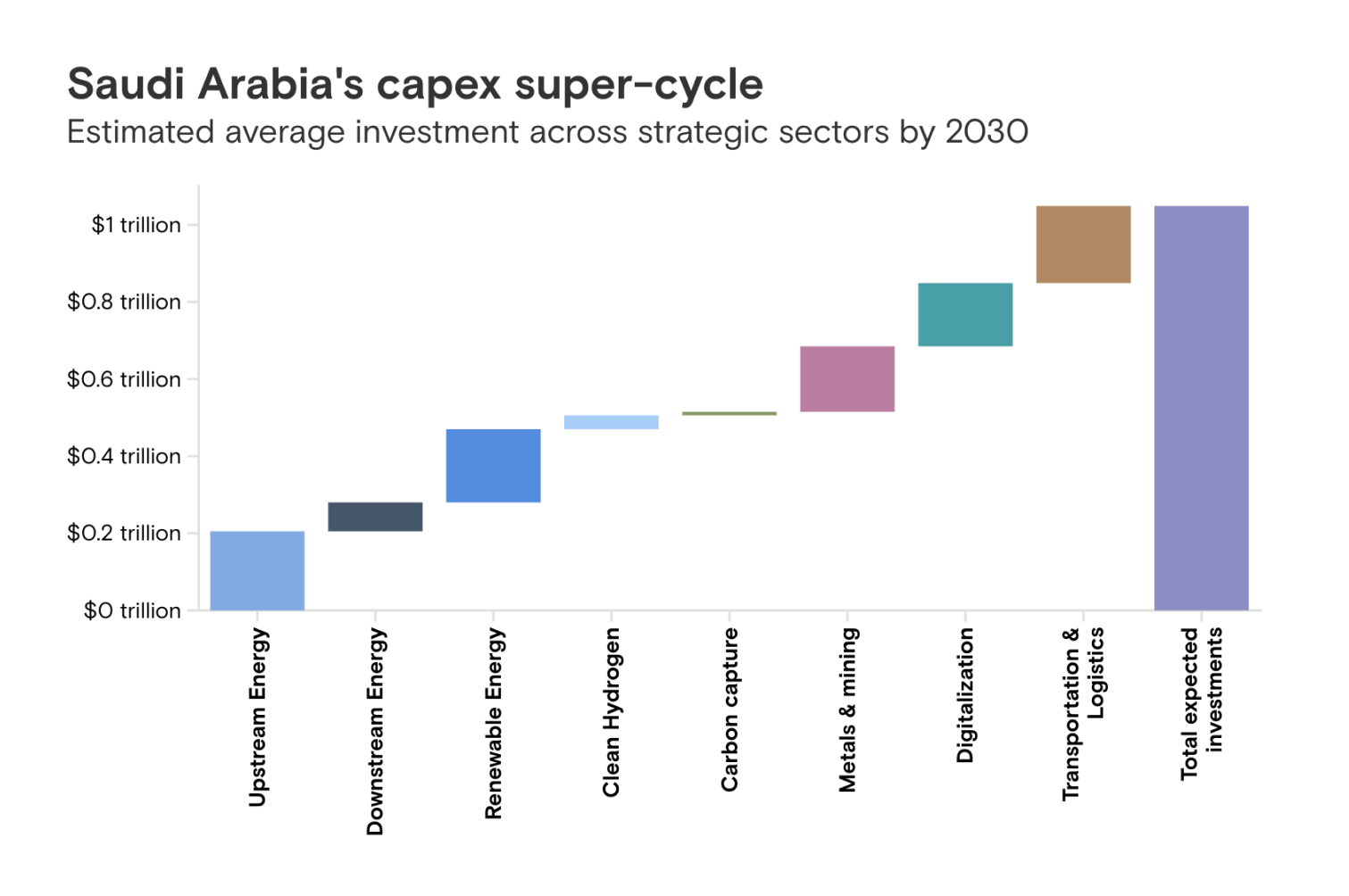
Saudi Arabia plans to invest $1 trillion in energy by 2030[10]
Outlook on Energy Geopolitics
Energy has always been a fundamental force in shaping global power, and it remains central to geopolitical dynamics today.
As the world transitions from fossil fuels to renewables, the balance of power will shift once again
Countries like China, which dominate critical technologies like battery and solar production, are well-positioned to lead in this new energy landscape, while others risk falling behind.
This perspective highlights that energy isn't just a resource for production - it's also a tool for influence, leverage, and power, shaping the future of international relations.
